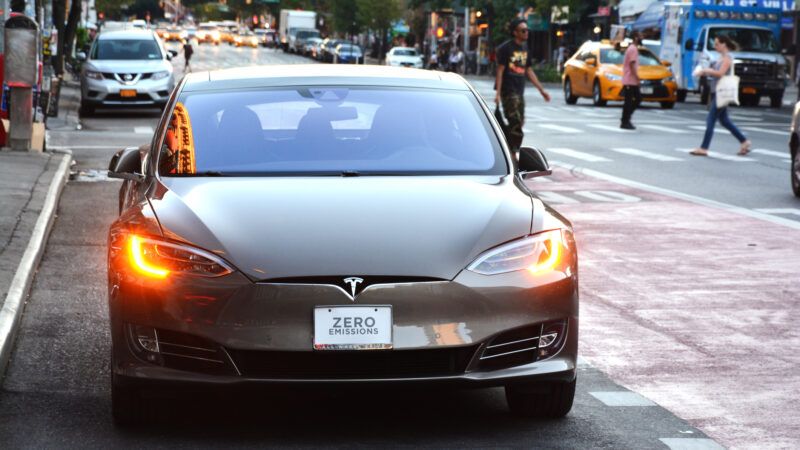Should Drivers Have To Pay More To Register Electric Vehicles?
Texas's $200 annual E.V. fees seem like a lot of money but is largely in line with what owners would likely pay in gas taxes.

Earlier this month, Texas Gov. Greg Abbott signed S.B. 505 into law, which will nearly quintuple the annual cost of registering an electric vehicle (E.V.) in the state. Is Texas punishing its eco-friendly citizens, or is there a legitimate reason to charge more?
The new law adds additional fees for motorists registering an electric vehicle. Currently, registering or renewing a Texas car tag costs between $50.75 and $54. Starting September 1, any "motor vehicle that has a gross weight of 10,000 pounds or less and uses electricity as its only source of motor power" would additionally be assessed a $200 annual registration fee. New E.V.s would require a $400 registration fee good for two years.
At first glance, this may seem like another "statement" law in the fossil fuel fight. When California sought to incentivize E.V.s by banning the sale of new gasoline-powered vehicles in the state by 2035, Abbott deemed the move "Ridiculous!" In January, Republicans in the Wyoming state legislature proposed a bill "phasing out" the sale of electric vehicles by 2035. One co-sponsor deemed the bill "more of a statement" than a piece of active legislation, and it died in committee.
But there is an underlying logic to the new rate hike. Under the new law, the extra revenue from E.V. registrations "must be deposited to the credit of the state highway fund." The highway fund, which builds and maintains the state's roads, is primarily funded by vehicle registration fees and the state gas tax. Historically, Texas drivers who drive a lot and put a lot of wear and tear on the roads bought a lot of gas, which means they paid for road upkeep through gas taxes. E.V. drivers don't pay the gas tax, but they do use the roads. Given that disparity, a higher registration fee is one way to ensure that everyone who drives also contributes toward maintaining the roads.
But it's not perfect.
"Ideally, all transportation funding should be based on a users-pay/users-benefit mechanism," says Baruch Feigenbaum, senior managing director of transportation policy at the Reason Foundation, the nonprofit that publishes Reason. In a 2019 article, Feigenbaum and Joe Hillman advocated scrapping gas taxes entirely and replacing them with tolls. Unlike gas taxes, they argued, tolls "treat vehicles more evenly, are easier to tie to specific highway use, and create a more precise and fair example of the users-pay principle."
According to the National Council of State Legislatures, at least 32 states require additional registration fees for electric vehicles, with costs ranging from $50 in Colorado, Hawaii, and South Dakota, to $225 in Washington. Earlier this year, Tennessee passed legislation that will gradually raise its E.V. registration fee to $274 in 2028. Although Texas's new fees will be higher than some peer states, Feigenbaum says that "assuming someone drives 12,000 miles per year," an annual E.V. registration between $150 to $200 would be akin to how much that driver would have paid in gas taxes.
If anything, the new law might be too generous. The Texas gas tax has been 20 cents per gallon since 1991, one of the lowest in the country. Indexed for inflation, that would be 43 cents per gallon today, meaning the state's gas tax has less than half the purchasing power it did in 1991. And since the bill's text only applies to vehicles that use electricity as their "only" power source, hybrid owners could pay comparatively less for road upkeep than their driving habits might dictate.
Increasing taxes or fees might be unpalatable, but the existence of publicly-funded roads requires some way to pay for them. E.V. fees, while imperfect, are one way to maintain some sense of fairness, in which people who drive more pay more for the time they spend on the road. "It's a blunt instrument," Feigenbaum says. "But it's better than vehicles paying nothing (which is the case for electric vehicles in some states) or having a non-users-pay/users-benefit funding mechanism (sales tax for example), which is the case in others."
